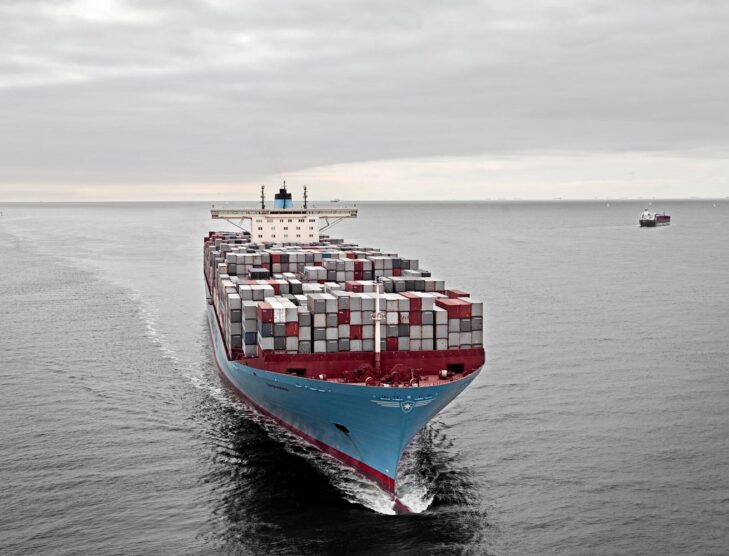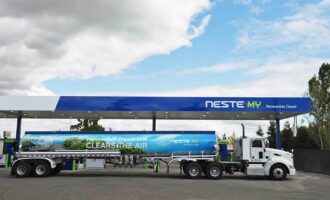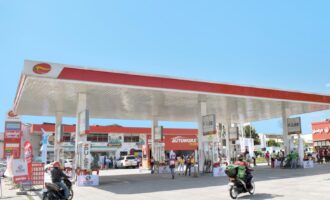
Maersk orders world’s first methanol-fueled container vessel
A.P. Moller – Maersk has signed a shipbuilding contract with Hyundai Mipo Dockyards for the world’s first container vessel fueled by carbon-neutral methanol. The feeder vessel, which will fly the Danish flag, will use a dual engine technology enabling it to sail on either methanol or traditional very low sulphur fuel.
Maersk announced the intention to order the vessel on 17 February 2021.
“This groundbreaking container vessel shows that scalable solutions to properly solve shipping’s emissions challenge are available already today. From 2023 it will give us valuable experience in operating the container vessels of the future while offering a truly carbon neutral product for our many customers who look to us for help to decarbonize their supply chains,” says Henriette Hallberg Thygesen, CEO of Fleet & Strategic Brands, A.P. Moller – Maersk.
The feeder will be 172 meters long and will sail in the network of Sealand Europe, a Maersk subsidiary, on the Baltic shipping route between Northern Europe and the Bay of Bothnia. The methanol propulsion configuration for the vessel will be developed by MAN Energy Solutions and Hyundai Engine and Machinery (main engine) and Himsen (aux engine) in collaboration with Hyundai Mipo and Maersk. Classification society will be American Bureau of Shipping (ABS).
”Developing this vessel is a significant challenge, but we have already come a long way in our work with the yard and the makers to reach this milestone. While we are pioneering these solutions for our industry, we are working with well-proven technologies and the cost potential from further scaling is becoming very clear to us,” says Ole Graa Jakobsen, head of Fleet Technology, A.P. Moller – Maersk.
More than half of Maersk’s largest customers have set — or are in the process of setting — ambitious science-based or zero carbon targets for their supply chains, making the order another important step in the Maersk efforts to support the rising number of customers calling for carbon-neutral products.M









